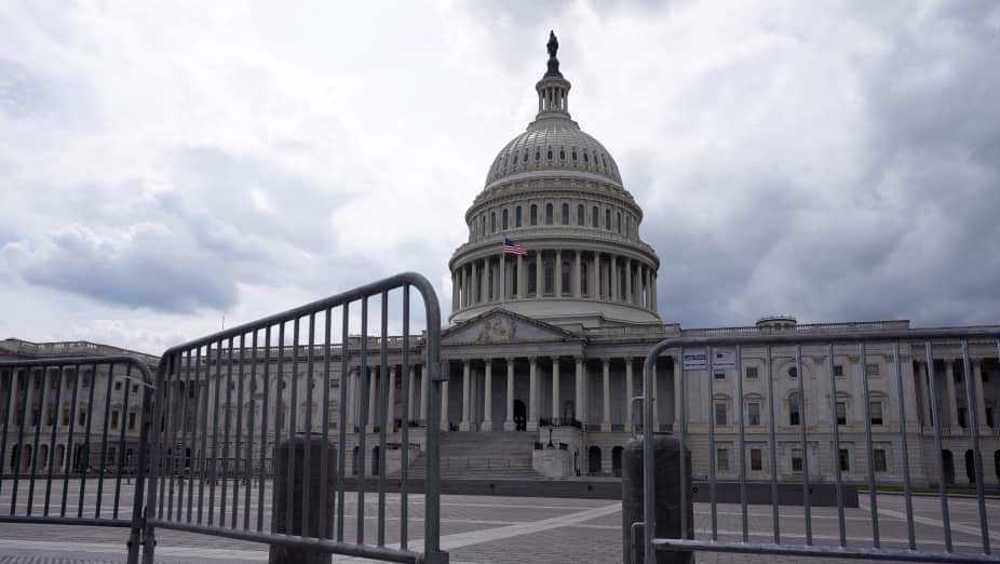Democrats retain control of US Senate with Nevada win, turn ‘red wave’ to ripple
US Democrats have kept control of the Senate after Senator Catherine Cortez Masto won re-election in Nevada.
Republicans, however, remained close to winning control of the US House of Representatives as officials, in some states, continued counting ballots cast in US midterm elections on Tuesday.
With Masto’s victory in the western state late on Saturday over Republican challenger Adam Laxalt – who had been backed by former US president Donald Trump – Georgia is the only state where both parties are still competing for a Senate seat.
The race in Georgia is set to go to a runoff on December 6, but even if Republicans win there, a 50-50 split means the Senate would effectively be controlled by the Democrats because the tying vote falls to the vice-president, Kamala Harris.
And, if Democratic Senator Raphael Warnock wins the Georgia runoff election against Republican challenger Herschel Walker, that would expand Democrats’ majority to 51-49.
That, in turn, would give Democrats an additional advantage in passing a limited number of controversial bills that are allowed to pass with a simple majority, instead of the 60 votes required for most legislation.
The newly elected Senate will be sworn in on January 3.
A Democratic-controlled Senate will provide insurance to US President Joe Biden that his nominees to fill dozens of federal judgeships will win confirmation.
The party will also keep control over committees and have the power to conduct investigations or oversight of the Biden administration, and will be able to reject legislation sent over by the House if the GOP wins that chamber.
However, the House of Representatives is leaning towards the Republicans, as officials continue counting ballots. A total of 218 seats are needed to gain a majority in the legislative body, which has 435 members.
Biden said he was incredibly pleased with the turnout in the US election and said the Republican party would now need to decide “who they are”.
Speaking to reporters in Cambodia ahead of an East Asia Summit on Sunday, Biden said his focus was on the Georgia Senate race.
“Again, I’m not surprised by the turnout. I’m incredibly pleased. And I think it’s a reflection of the quality of our candidates,” Biden added.
Midterms traditionally deliver a rejection of the party in power, and with inflation surging and Biden's popularity in the doldrums, Republicans had been expecting to ride a mighty "red wave" and capture the Senate and the House of Representatives. However, the wave never got much beyond a ripple.
The Republican performance may have been one of the weakest by an out-of-power party against a first-term president’s in decades. They failed to deliver on a big “red wave” that was supposed to sweep the country with a base roused by Trump despite Biden’s deep voter frustration over inflation.
The loss of the Senate will focus minds sharply on Trump’s ongoing dominance of the Republican Party after he backed rightwing or celebrity candidates in several key races who lost, such as Dr. Mehmet Oz in Pennsylvania.
Political gaps have opened up, with some prominent Republican figures openly appealing to Trump not to announce a 2024 run, as he is widely expected to do so and promised to make a “big announcement” on Nov. 15.

Trump fires top US general in unprecedented purge of military leadership

AP sues three US officials over barred access to presidential events

‘No legal prohibition’ on sale of Shahed drone: Iran’s UN mission
Israel’s massacres won’t grant it ‘legitimacy’: Hamas on 31st anniversary of Ibrahimi Mosque tragedy
French leader decries ‘unprecedented diplomatic scandal’ after Israel bars European MPs
VIDEO | Washington’s failed projects
VIDEO | Islamabad exhibition exposes Israeli atrocities in Gaza
Trump rescinds arms sales regulation in favor of Israel, sources say
Iran’s president vows to accelerate cooperation with Russia
Palestinian says Israeli jailers poured acid on him during interrogation
Iran, Turkmenistan seek increased cargo transit via railways












 This makes it easy to access the Press TV website
This makes it easy to access the Press TV website